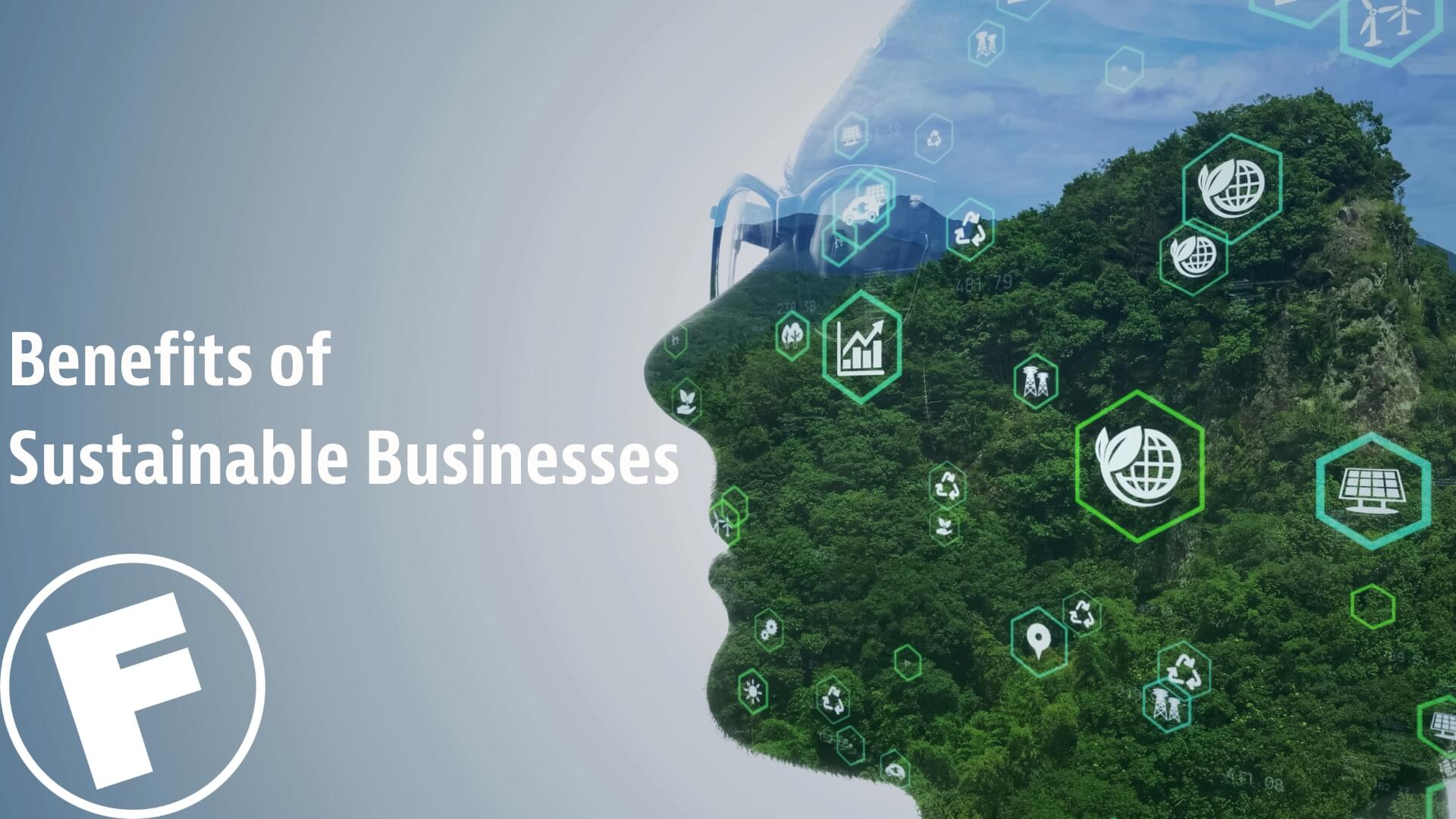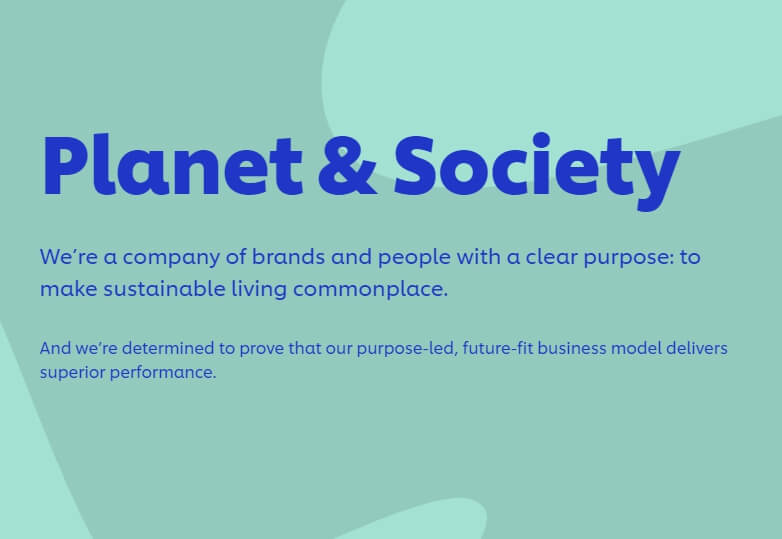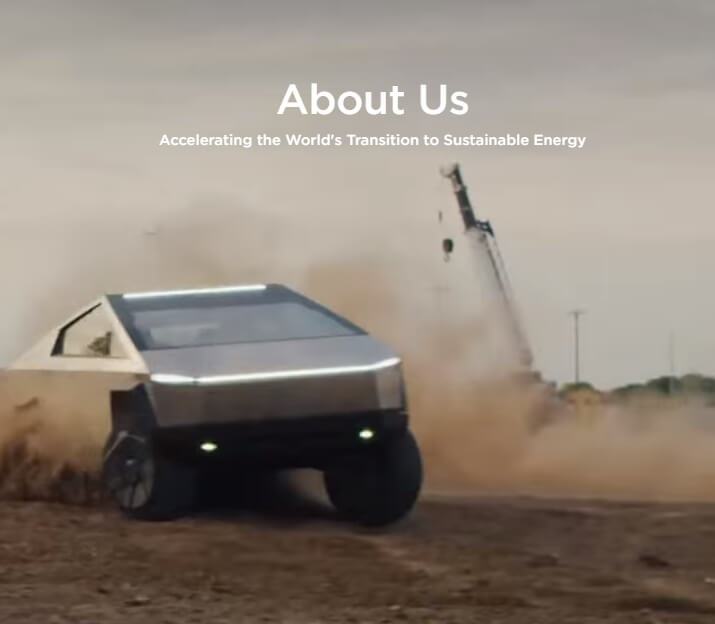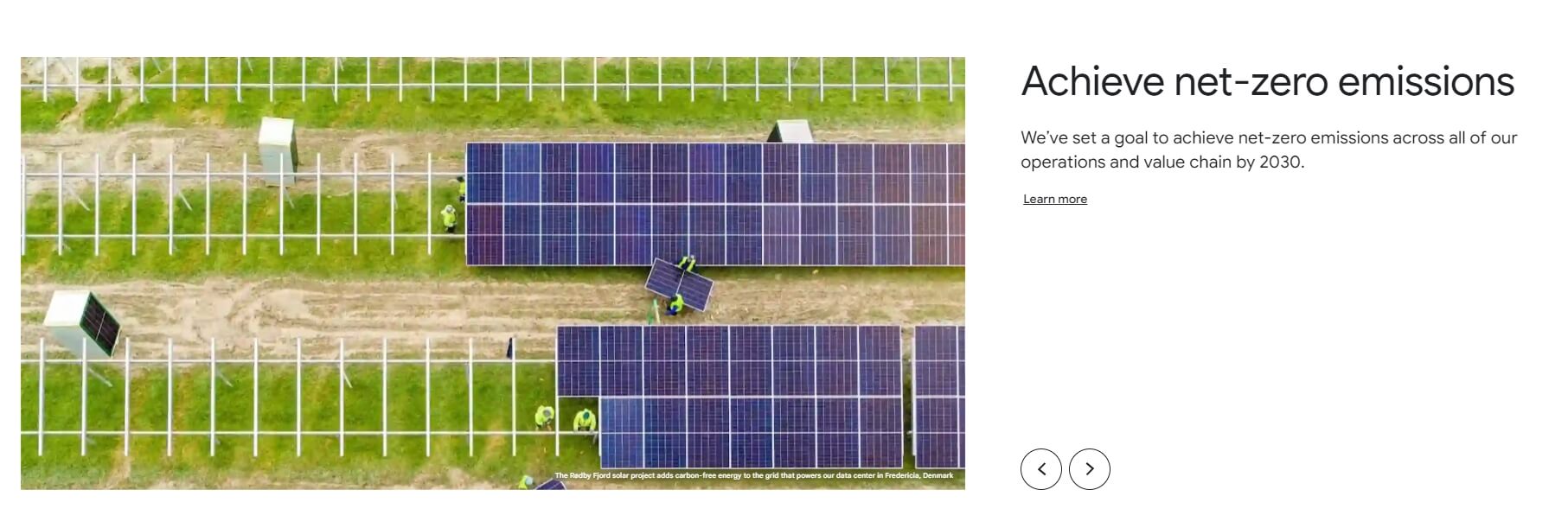The Benefits of Running a Sustainable Business (With Examples from Global Brands)
In an age where environmental concerns and climate change are at the forefront of global conversations, businesses have a pivotal role to play in shaping the future of our planet. Gone are the days when profit maximization was the sole driver of corporate decision-making.
Today, a new paradigm has emerged—one that champions sustainability as a cornerstone of success. In this article, we’ll explore the benefits of running a sustainable business, shedding light on how organizations can not only thrive but also make a positive impact on the world. Enjoy!

Bottom line: Sustainability isn’t just a trend
Sustainability is more than just a buzzword; it’s a conscious commitment to minimizing ecological and social footprints while maximizing long-term growth and profitability.
In fact, “93% of consumers maintained or increased their sustainability purchases in 2022—even as the cost of living increased around the world,” and brands that emphasize sustainability enjoy more customer loyalty than companies that don’t make it a focus, according to McKinsey.
By having an authentic sustainability strategy, CEOs and the companies they run can address pressing environmental issues, enhance their brand reputation, attract environmentally-conscious consumers, and foster a sense of corporate responsibility. To illustrate these advantages, let’s delve into some real-world examples of businesses that have successfully incorporated sustainability into their operations.
Global brands leading the charge for sustainability
Sustainable business practices don’t go out of style—and they’ve historically led to a mighty presence and fantastic reputation among consumers. Put simply, corporate social responsibility and environmental sustainability win customers and build longevity.
These enormous brands are a testament to how an environmentally responsible business model doesn’t counteract success. Take note!
Patagonia: A trailblazer in ethical fashion

Patagonia, an outdoor apparel company, has long been a pioneer in the realm of ethical and sustainable fashion.
They have embraced an ethical supply chain with fair labor, using recycled materials, and advocating for responsible consumerism. Patagonia’s “Worn Wear” initiative encourages customers to buy used clothing, promoting a culture of reuse and repair rather than constant consumption.
“Earth is now our only shareholder.” – Yvon Chouinard, Founder, Patagonia Inc.
This approach not only appeals to environmentally-conscious consumers but also reduces the fashion industry’s carbon footprint, demonstrating that profitability and sustainability can coexist harmoniously.
Unilever: Leveraging sustainability for profitability

Consumer goods giant Unilever has demonstrated that sustainability can drive profitability.
Their Sustainable Living Plan, launched in 2010, commits the company to reducing its environmental impact while simultaneously increasing its positive social impact. Unilever’s eco-friendly products, such as Dove’s “Real Beauty” campaign and sustainable packaging innovations, have resonated with consumers.
This commitment to sustainability has not only bolstered the company’s reputation but has also resulted in significant cost savings through resource efficiency.
Tesla: Electrifying the automotive industry

Its disgraced founder aside, Tesla is quintessentially eco-friendly.
Tesla revolutionized the automotive industry by popularizing electric vehicles that reduce carbon emissions. By focusing on clean energy, efficient battery technology, and self-driving capabilities, Tesla has not only disrupted the traditional automotive market but has also redefined the standards of sustainability within the industry.
Beyond creating a sustainable product, Tesla has also invested in renewable energy solutions, such as solar panels and energy storage, showcasing a comprehensive commitment to environmental responsibility.
Google: A carbon-neutral tech giant

Google has been carbon-neutral since 2007—a palmary achievement for a company of its size.
For a brand that doesn’t really need to worry about retention or pleasing stakeholders, it’s still excellent to see them leading by example. The company’s sustainability ambitions go further, too, with Google planning to become completely carbon-free by 2030.
Google also invests heavily in renewable energy, advocates for the responsible use of natural resources, implement green architecture in its physical spaces, and contributes to the circular economy by using recycled materials and designing products with longer life spans.
These examples underscore that sustainability is not just a moral obligation but also a strategic advantage in today’s business landscape. From enhancing brand image to reducing operational costs and contributing to a better world, the advantages of sustainability are undeniable.
The real competitive advantages of sustainability for your business
The benefits of sustainability apply at scale—whether the brand in question is a titan of industry or a local small business.
Your sustainability efforts and sustainability goals won’t go unnoticed by customers who align their values with yours. Entrepreneurs large and small can be sure to reap the benefits of committing to protecting the planet and people.
- Making a Positive Impact: First and foremost, running a sustainable business means you’re doing your part to protect our planet. You’ll be contributing to a greener, cleaner Earth for future generations. Think about a franchise that focuses on restoring and revitalizing valued products instead of throwing them away—can you guess who we might be referring to? Being part of a brand that does good goes a long way toward your own satisfaction and the perception of your business.
- Attracting Conscious Consumers: By going eco-friendly, you’ll be a magnet for customers who prioritize eco-conscious shopping. The incentives for those consumers to rep your brand over other, less-eco-conscious businesses are huge.
- Cost Savings Over Time: Believe it or not, being green can save you some green in the long run. Sustainable practices often lead to reduced energy and resource consumption. Think about Unilever above, they’ve achieved enormous savings through long-term resource efficiency, and the same concept applies to any business you might find yourself in.
- Setting Yourself Apart: In a world where every business seems to be shouting for attention, going green is a unique selling point. Your eco-friendly stance as a business owner can help you stand out from the crowd and build a loyal customer base.
- Staying Ahead of Regulations: Governments are getting stricter about environmental rules. Running a sustainable business ensures you’re ahead of the game, avoiding any unexpected fines or headaches down the road.
- Room for Innovation: Sustainability often sparks innovation. For instance, look at companies like Beyond Meat, shaking up the food industry with plant-based meat alternatives. You can explore groundbreaking, eco-friendly products or services within your franchise/business.
- Happy, Motivated Employees: Employee satisfaction soars when working for green businesses with genuine sustainability initiatives. It’s not just about a paycheck; it’s about a values-driven work environment and being part of something meaningful. You’ll attract talented folks who share your eco-values if you uphold sustainability.
- Future-Proofing: Sustainability isn’t a passing trend; it’s the future. By embracing eco-friendly practices now, you’re future-proofing your franchise. You’ll be ready to adapt to changing customer expectations and regulations.
So if your business strategy leans into defending the planet and the future of our civilization, plus utilizing resources efficiently and embracing sustainable technologies, you’re sure to strike a chord with today’s market and have an edge over the competition.
Fibrenew’s stance on sustainability: All the benefits, none of the bullsh*t
We’ve built Fibrenew on the back of an all-encompassing sustainability agenda.
Our philosophy is to extend the lifecycle of incredible leather, vinyl, plastic, and upholstery products, avoiding the need for them to hit the landfills, and satisfying our customers sentimentality at the same time.
We are proud to say we are fundamentally sustainable, not just as a way to try to make us look better, but because it’s what we actually believe in—no BS.
If you’re on board with protecting our Earth and want to make a great living doing so—get your free copy of the Franchise Information Report today and let’s start the conversation!

Bonus: Some simplified strategies to make your business more environmentally friendly
We’ve established that making your business more sustainable can have positive implications for the environment, local communities, and reduce business costs. So here are some basic methods to consider when becoming more eco-aware.
These are very simplified explanations, so it’s up to you to fill in the details as they relate to your brand!
Reduce energy consumption:
- Implement Energy-Efficient Practices: Utilize energy-efficient appliances, lighting, and HVAC systems.
- Use Renewable Energy: Consider installing solar panels or sourcing energy from renewable providers.
- Optimize Energy Usage: Regularly service equipment to ensure it’s working efficiently and turn off lights and electronics when not in use.
Reduce waste:
- Implement Recycling: Set up recycling bins and encourage employees to use them.
- Reduce Single-Use Plastics: Provide reusable items such as mugs, plates, and utensils.
- Composting: Consider composting organic waste and raw materials where possible.
Sustainable procurement:
- Buy Locally: Support local suppliers and producers to reduce transportation emissions and promote local economies.
- Choose Sustainable Suppliers: Opt for suppliers who have responsible and sustainable practices.
- Buy Eco-friendly Products: Choose products that have minimal environmental impact, such as those with eco-friendly packaging and certification.
Water conservation:
- Install Water-Saving Devices: Use low-flow faucets, toilets, and appliances.
- Encourage Water Conservation: Educate employees on the importance of using water responsibly.
- Collect Rainwater: Use collected rainwater for landscaping and other non-potable water needs.
Sustainable transportation:
- Encourage Public Transportation: Provide incentives for employees who use public transit, carpool, or bike to work.
- Maintain Vehicles: Regularly service company vehicles to ensure they are running efficiently.
- Consider Electric Vehicles: If possible, incorporate electric or hybrid vehicles into your company fleet.
Educate and engage employees:
- Provide Training: Offer training and resources to help employees understand the importance of sustainability.
- Encourage Sustainable Practices: Incentivize employees to adopt sustainable practices both at work and at home.
- Form a Green Team: Establish a committee dedicated to implementing and managing sustainability initiatives.
Enhance sustainability in operations:
- Implement Telecommuting: Allow employees to work remotely to reduce commuting emissions.
- Digitize Operations: Reduce paper usage by using digital documentation and communication tools.
- Optimize Supply Chain: Streamline operations and reduce waste through efficient supply chain management.
Community engagement:
- Participate in Local Sustainability Initiatives: Engage in community-based sustainability projects and activities.
- Support Local Charities and Non-Profits: Contribute to and collaborate with organizations working towards environmental conservation and social welfare.
- Offer Sustainable Products/Services: Provide products or services that have a positive impact on the environment and community.
Measuring and reporting:
- Conduct Sustainability Audits: Regularly assess the environmental impact of your business operations.
- Set Measurable Goals: Establish clear, attainable sustainability goals and track progress.
- Communicate Achievements: Publicize your sustainability achievements to customers, stakeholders, and the community, fostering a positive business image.
Sustainable financial management:
- Invest in Sustainable Technologies: Allocate funds to invest in energy-efficient and eco-friendly technologies.
- Apply for Green Grants and Incentives: Explore governmental and private funding opportunities for sustainable projects.
- Integrate Sustainability into Business Strategy: Develop a business model that intertwines profitability and sustainability.
By taking steps in these areas, any business can significantly reduce its environmental footprint, improve its reputation, and realize cost savings through efficiency improvements.

